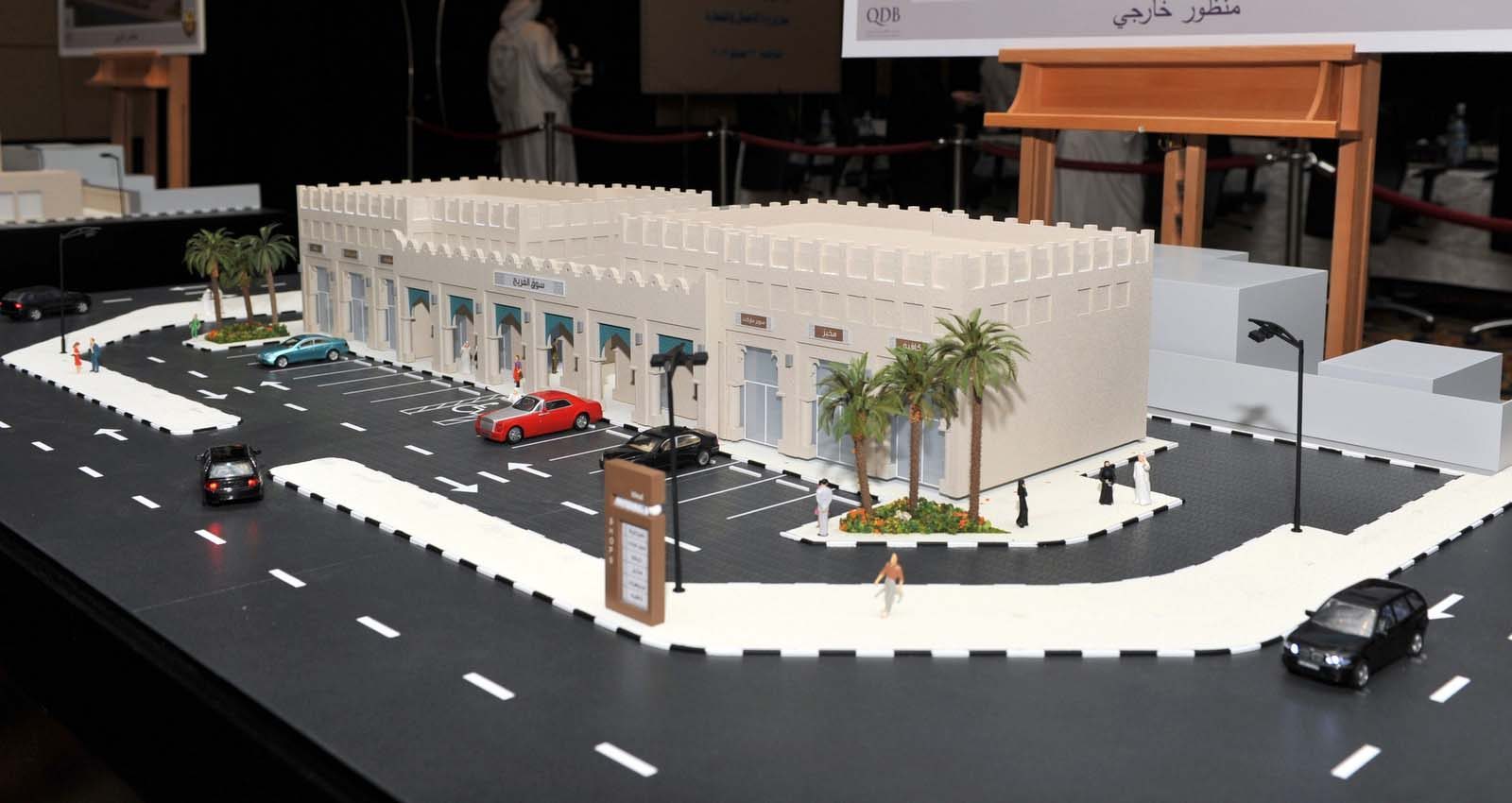
A new neighborhood market concept in Qatar has seen poor implementation and is not fulfilling people’s needs, members of the Central Municipal Council (CMC) have said.
Speaking to officials from Qatar Development Bank (QDB) last week about the Al Furjan markets, members said rent remained too high for shops and many of the locations were not in populous areas.
Plans for the markets were first announced by the Ministry of Economy and Commerce (MEC) in 2014, with the aim of reducing congestion in central Doha by bringing together bakeries, grocery stores, laundry services, banking options, pharmacies and other outlets in one place.
However, CMC member Nasser Ibrahim Al Mohannadi said that in practice, the markets have only exacerbated the congestion problem, among other things.
Expansion plans
Al Furjan’s first phase was completed at the end of 2014 with a total of 44 markets and 645 shops.
It is now expected to expand to 200 markets in the second phase, Essa Al Kuwari, director of support operations at Qatar Development Bank, said during the CMC meeting.
He added that the bank has received 30 pieces of land from the government to start building, and that the new Al Furjan locations will include centers in Al Dhayen, Al Khor, Al Rayyan and Al Shahaniya.
However, they are still in the design phase no timeline was given for the second phase.
Al Kuwari added that in the first phase, construction of the markets only took about one year, but approvals and permits took another six to eight months to obtain after that.
High rents
During their regular meeting, CMC members called for a reduction in shop rents, saying QR6,000 a month was not affordable.
They also urged the markets to sell goods that the people actually need and give priority to the residents in the area to rent out the shop. In the first phase, anyone could apply to rent a shop through a lottery.
Responding to these concerns, Al Kuwari said that the bank was not responsible for determining the rents, and that such decisions are taken by the MEC. He stressed that QDB was only responsible for building the project.

He added that the rents were determined by supply and demand – due to the limited number of markets, rent prices are high. But they will come down once more are built.
Other members said that low-income residents like widowed and divorced women should have priority in renting these shops – with help from the bank – to support them in making a decent living.
And some criticized the U-shape design of Al Furjan shops, saying that this causes more congestion and traffic problems in the entrances and exits, as people here are more used to the concept of commercial streets.
Random locations
For his part, CMC Chairman Mohamed Mahmoud Al Shafi pointed out that many of Al Furjan shops are left abandoned because the population is low in these areas and the shops are not needed.
Al Kuwari explained that in the first phase of the project, the markets were built in areas that were expected to become more populated.
However, the infrastructure in some of these areas was not completed, so many residents postponed building their homes there. But at the same time, the Al Furjan markets had already been constructed, which led to the problem.
“(But) we’ve overcome this complaint in the second phase,” he said, adding that experts have been conducting studies to evaluate the number of residents currently living in each area and the shops that are already open.
This will help builders better determine where to build the markets this time around,” he added.

Other CMC members like Sheikha Al Jufairi said that although her Old Airport constituency has a large number of residents, there is no Al Furjan market in her area.
Al Kuwari responded by saying that QDB was not responsible for choosing or distributing land for the markets, and instead the government provided land to the bank to build based on the residents’ needs.
Meanwhile, CMC’s chairman Al Shafi put the responsibility on CMC members, saying that they had to take initiative and contact the government officials to request the markets in their areas.
For her part, CMC member Fatima Al Kuwari asked whether accommodation for staffers was built near the markets, as many Qatari families have previously complained about blue-collar men living in their neighborhoods.

Yusef Al Ghazali, head of the engineering department at QDB, acknowledged that this issue was not taken into consideration during the first phase, but has been integrated in the second phase, as there will be housing available for workers on the second floor of each shop.
Finally, Essa Al Kuwari said that they are taking all complaints and suggestions seriously, will discuss them with the designated authorities and make decisions on how to improve the markets in the next phases.
”We are all brothers and we have a common goal and that is serving the people,” Al Shafi concluded.
Thoughts?







